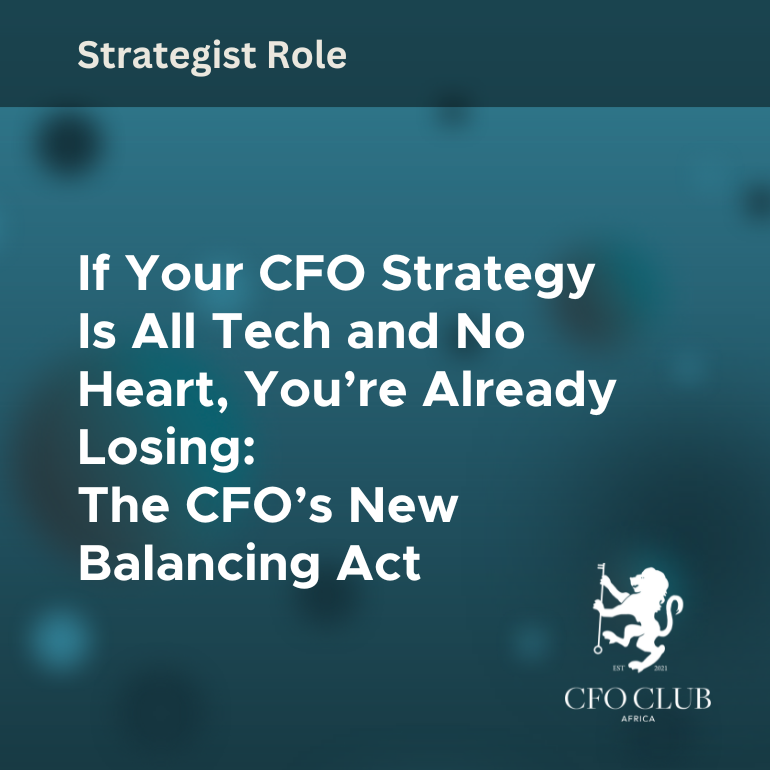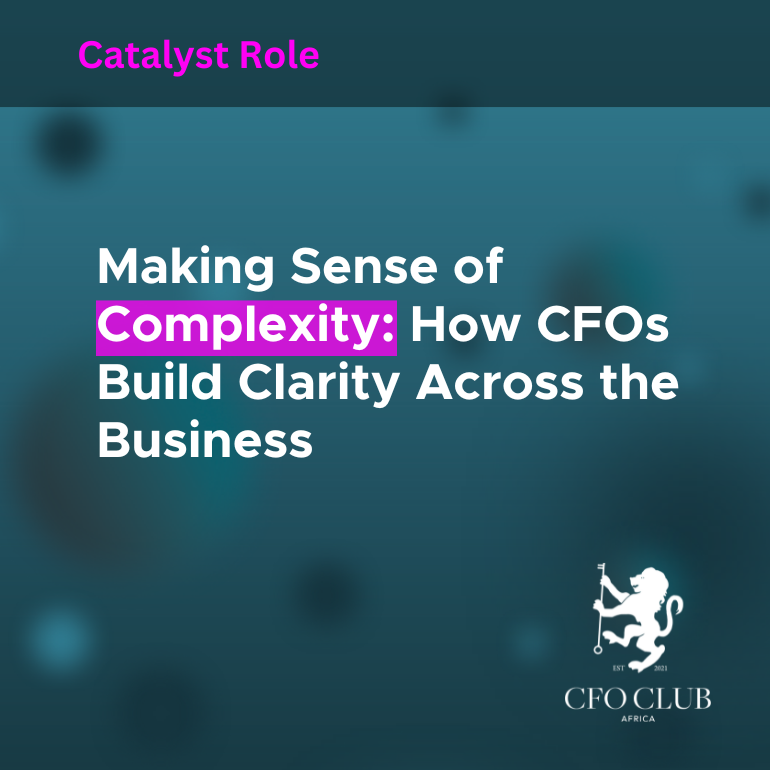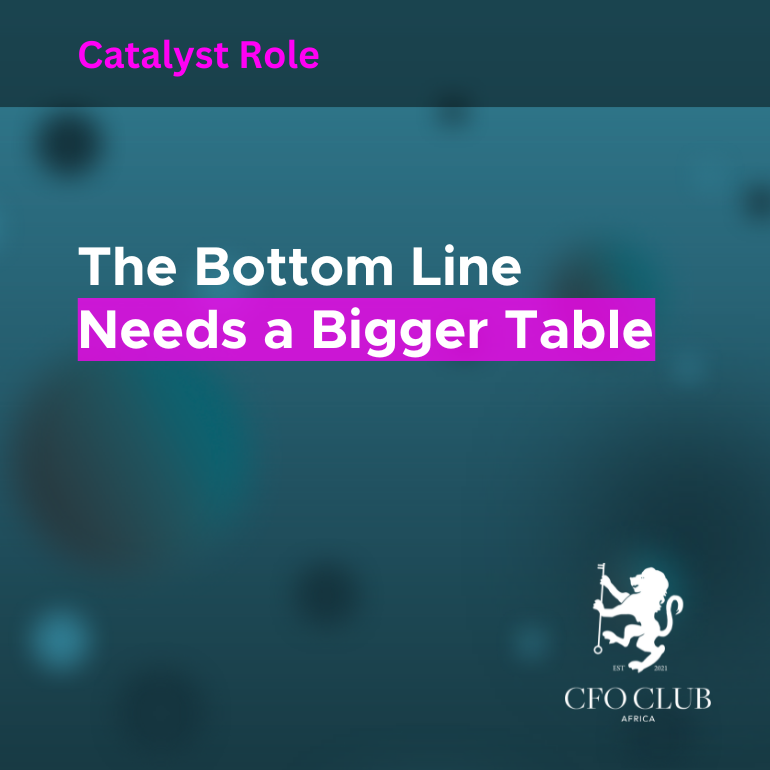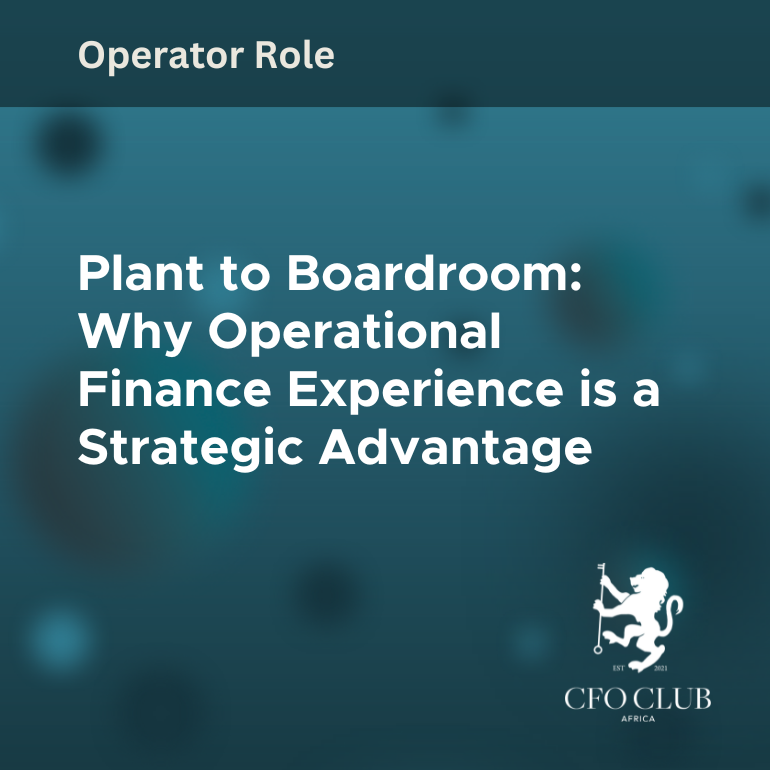If Your CFO Strategy Is All Tech and No Heart, You’re Already Losing:The CFO’s New Balancing Act
Your company has just rolled out a shiny new AI tool that promises to “revolutionise finance.” It crunches data, predicts forecasts, and practically winks at you while telling you to cut costs. But then a long-time customer calls with a real-life problem. Suddenly, all those algorithms cannot match the simple power of a human voice saying, “We’ve got your back.”
Welcome to the paradox of modern finance. On one hand, technology promises efficiency, precision, and scalability. On the other, people still crave warmth, trust, and connection. And right in the middle of this tug-of-war sits the CFO.
Why CFOs Can’t Hide Behind the Machines
For decades, CFOs have been the guardians of numbers. But now, with automation handling everything from reconciliations to reporting, CFOs are called to play a different game. According to a McKinsey survey, up to 40 percent of finance tasks can already be fully automated. That means the CFO’s value is no longer in ticking boxes. It is in leading with judgment, trust, and yes, humanity.
And before you think this is all fluffy HR-speak, here’s the kicker: companies that prioritise customer experience generate 4 to 8 percent higher revenue growth compared to their peers. And what is customer experience if not the perfect blend of digital convenience and human connection?
If finance leaders think they can rely on bots to run the show, they are missing the point. The future of finance is not just digital. It is digital with heart.
Why Technology Alone is Not Enough
Let us face it: technology can be dazzling. Cloud platforms, predictive analytics, blockchain, robotic process automation, all of it sounds impressive in boardrooms. But there is a risk here. When CFOs chase efficiency without empathy, they create cold, transactional systems.
Take chatbots, for example. 59 percent of consumers feel companies have lost touch with the human element of customer experience. If customers feel like they are yelling into a digital void, they do not care how slick your back-end system is. They just want someone to care.
As CFO, you cannot separate the financial model from the human model. The numbers tell one story, but the human side tells another. If you ignore the second story, the first one eventually collapses.
The Funny Side of Digital Gone Wrong
Let us admit it, finance and technology do not always play nice. Think of the time you proudly implemented a new AI tool, only to find it took longer to train the system than to do the job yourself. Or when a bot confidently misclassified “petty cash” as “pet food expenses,” making your auditors wonder if you were running a side hustle as a vet.
These mishaps may sound funny, but they highlight an important truth: machines are only as good as the humans guiding them. Without judgment, context, and empathy, technology risks becoming just another very expensive paperweight.
Digital With Heart: The Business Case
Blending technology with humanity is not just nice-to-have. It is a competitive advantage.
1. Trust drives loyalty
Deloitte found that 88 percent of customers who trust a brand will buy again, and 62 percent will buy almost exclusively from that brand. Trust is built on transparency, fairness, and empathy, things no algorithm can fully replicate.
2. Employee wellbeing boosts performance
According to Gallup, engaged teams show 21 percent higher profitability. That means CFOs who combine digital tools with human-centred leadership unlock real financial gains.
3. Tech-enabled empathy wins the market
A Salesforce study revealed that 84 percent of customers say being treated like a person, not a number, is critical to winning their business. Digital transformation without heart is transformation destined to fail.
How CFOs Can Build Digital With Heart
So how do CFOs strike the balance? Here are some practical, research-backed moves:
1. Put empathy in the design phase
When implementing finance tech, ask not only “How efficient is this?” but also “How does this feel for the people using it?” Whether it is customers or your own team, build systems with user experience in mind.
2. Use AI for judgment-free data, not judgment-free leadership
AI is excellent at spotting anomalies or predicting trends. But the decision to act on those insights still requires human judgment. CFOs should treat AI as a sharp pencil, not the whole accountant.
3. Train people, not just platforms
According to LinkedIn’s 2023 Workplace Learning Report, soft skills like communication and emotional intelligence are among the top skills companies need most. Invest in developing these across your finance teams to complement the tech stack.
4. Lead with transparency
Do not let technology become a black box. Communicate openly with your team and stakeholders about how decisions are made, especially when algorithms are involved. Transparency builds trust, and trust builds business resilience.
5. Balance efficiency with humanity
For every digital initiative, balance it with a human touchpoint. Automate reconciliations, sure, but make sure customer complaints get human ears. Use analytics for forecasting, but check in personally with your teams during crunch time.
CFOs as Champions of Digital Culture
Culture is where “digital with heart” truly comes alive. As CFO, you are not just financing transformation. You are shaping how it is experienced. Your role is to make sure that the finance function is not simply a machine of efficiency but a team that understands and serves people.
Consider this: MIT Sloan Management Review found that companies with digitally mature cultures are 26 percent more profitable than their peers. What sets them apart is not the tech itself, but the way they combine digital initiatives with human values.
As CFO, you are the custodian of both the budget and the culture. And culture, unlike software, cannot be patched with the next update. It requires daily attention and leadership.
The Heartbeat Behind the Numbers
At its core, finance has always been about people. Budgets, forecasts, and balance sheets exist to enable livelihoods, protect futures, and create opportunities. Digital tools may speed up the process, but the heart of finance remains human.
This is where CFOs must step in as both architects of systems and stewards of trust. The numbers matter, but so do the lives behind those numbers.
The Bottom Line
Digital with heart is not a slogan. It is a survival strategy for modern finance leaders. Technology without humanity creates efficiency without loyalty. Humanity without technology creates warmth without scale. But combine the two, and you get sustainable growth, engaged teams, and customers who trust you with their future.
So the next time a vendor tries to sell you “the future of finance in a box,” remember: the best CFOs do not just buy technology. They humanise it. They ensure that when the numbers are crunched, the people behind them still feel seen, heard, and valued.
Because in the end, no matter how advanced the software is, finance is not just about digits on a screen. It is about trust, connection, and building businesses that last.





